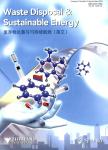Innovations in food waste management: from resource recovery to sustainable solutions
作者机构:Zhejiang Sci Tech Univ Coll Life Sci & Med 2 StQiantang Dist Hangzhou Zhejiang Peoples R China
出 版 物:《WASTE DISPOSAL & SUSTAINABLE ENERGY》 (Waste Dispos. Sustain. Energy)
年 卷 期:2024年第6卷第3期
页 面:401-417页
核心收录:
学科分类:083002[工学-环境工程] 0830[工学-环境科学与工程(可授工学、理学、农学学位)] 08[工学] 0807[工学-动力工程及工程热物理]
基 金:The work was supported by the Agricultural Technology Collaboration Project of the Zhejiang Department of Agriculture and Rural Affairs [2022SNJF079] Agricultural Technology Collaboration Project of the Zhejiang Department of Agriculture and Rural Affairs
主 题:Food waste Biological methods Thermal methods Resource recovery Anaerobic digestion Fermentation
摘 要:Food waste (FW) constitutes a significant portion of municipal solid waste (MSW) and represents an underutilized resource with substantial potential for energy generation. The effective management and recycling of FW are crucial for mitigating environmental issues and minimizing associated health risks. This comprehensive review provides an in-depth overview of current technological applications for converting FW into energy with the dual goals of reducing environmental impact and maximizing resource utilization. It covers various aspects, including pretreatment methods, biological technologies (e.g., anaerobic digestion and fermentation), and thermal technologies (e.g., incineration, pyrolysis, gasification, and hydrothermal carbonization). The analysis includes the scope, advantages and disadvantages of these techniques. Landfilling, composting, and incineration are widely considered the most prevalent methods of FW disposal and have substantial negative impacts on the environment. Advanced technologies such as anaerobic fermentation offer environmental benefits and are suitable for scaling up, reducing greenhouse gas emissions, and producing renewable energy such as biogas, thus reducing carbon emissions. The promotion and adoption of advanced technologies like anaerobic fermentation can contribute to more sustainable FW management practices, reduce environmental impacts, and support the transition to a circular economy. Additionally, this article presents successful case studies, emphasizing the importance of technological integration in FW treatment. Furthermore, this article outlines future directions for FW treatment, including advancements in biological treatment technologies, decentralized treatment systems, and the adoption of digital and data-driven FW management systems. These emerging trends aim to promote sustainable, resource-efficient, and environmentally responsible FW management practices.



